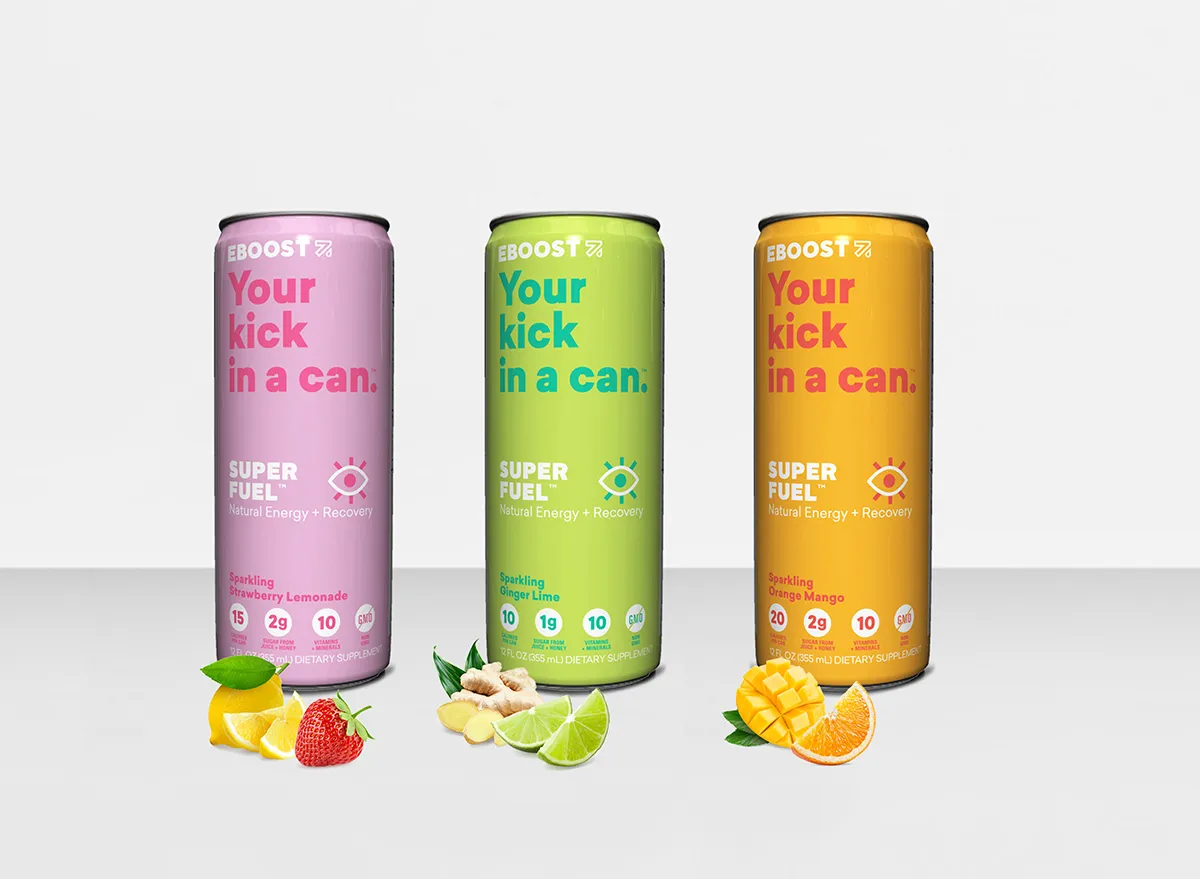
Can an energy drink really be healthy? While there's wide speculation on energy drinks being healthy or unhealthy, there are in fact a few healthy energy drinks out there that aren't waist-widening beverages that cause jitters and make your heart pound.
A new crop of energizing sips are sparkling waters with natural fruit flavors or tea-based beverages fueled with B vitamins and brain-boosting adaptogens, like L-theanine. They're also canned without added sugars and zero artificial sweeteners, flavors, and colors. Some use cold-pressed vegetable and fruit juices for color and extra nutrients.
Meanwhile, some O.G. energy drink brands—think Red Bull and Monster—are playing catch-up to promote ways they've dialed back on their dangers to introduce more wellness-focused energy drinks. Overall, these are purported to replace their high-calorie, artificial ingredients with elements that are more mindfully natural.
But how can you ensure that what you're drinking is going to give you the boost you need? To help you find the unhealthy and healthy energy drinks on the market, we tapped five nutrition pros: Dr. Mike Roussell, Ph.D., nutrition expert and co-founder of Neuro Coffee; Hillary Cecere, RDN and registered dietitian for Eat Clean Bro; Dr. Nicole Avena, Ph.D., an assistant professor of neuroscience at the Mount Sinai School of Medicine and a visiting professor of Health Psychology at Princeton University; registered dietitian and certified diabetes expert Karen Graham, RD, CDE; and registered dietitian Talia Hauser, RD, LDN.
How to pick the best healthy energy drinks.
When shopping the aisles for an energy drink, there are certain nutritional and ingredient claims to look out for.
- Added sugar: Roussell says to look for one that "Ideally has zero [sugar], but definitely less than 10 grams per 8-ounce serving. If you're going higher than that, I would only use it prior to exercise."
- "Energizing" vitamins: When it comes to energy drinks fortified with vitamins and antioxidants, Roussell says they're not going to make much of a difference in giving you energy. However, B vitamins are essential for converting food into energy. "B vitamins are put in a lot of energy drinks because they are needed for our body to break down and use the energy found in the foods we eat. But more B vitamins doesn't make your body do this better, and it isn't something that you can feel," Roussell explains.
- Health-boosting adaptogens: Some energy drinks also infuse certain antioxidants, minerals, and adaptogens to reduce muscle soreness, improve cognitive function, and promote calm. But Roussell reminds us that the benefits of these health boosters are limited. "Most energy drinks are under-dosed and contain levels of ingredients that are so low, you won't benefit from their effect," he says.
- Caffeine: In terms of how much caffeine you can enjoy daily, it's best to limit your intake to no more than 400 milligrams. However, Graham cautions, it's especially important for consumers to keep an eye on the caffeine within energy drinks. "The FDA does not require manufacturers to list how much caffeine they add," she says. "Some energy drinks do list caffeine, but this is not necessarily the total amount of caffeine in the beverage."
To help eliminate the guesswork at the grocery, we rounded up the healthy energy drinks on the market—as well as the unhealthiest energy drinks to avoid—to help you make smarter choices for your caffeine boost. Our list is based on caffeine, calories, and sugar content. However, if some don't have any of those, we then based on the carb content.
Best: Nuun Energy
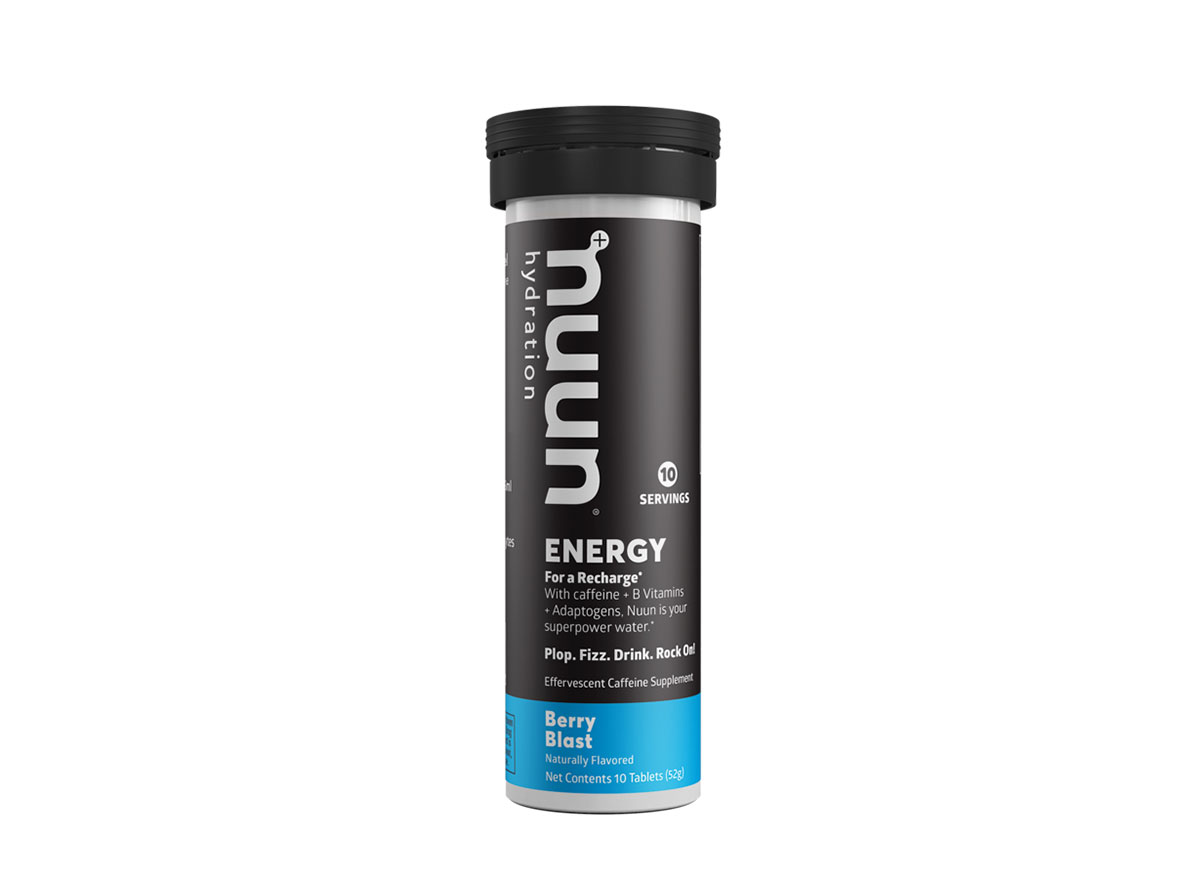
Nuun Energy, which comes in a fun tablet form that's easy to drop into water, "might be as natural as you can get without making your own electrolyte replacement drink," Hauser told us. She went on to explain that the calories and carbs in this drink come from tapioca syrup sugar and dextrose, which is a form of sugar made from corn, that's identical to glucose—the type of sugar in our bloodstream. "However," she added, "there's only two grams of [dextrose] per tablet, so it's almost a negligible amount." Hauser highlights Nuun Energy's other ingredients, like vitamins, organic beet powder, stevia leaf extact, and organic ginseng extract for caffeine. "I would recommend this tablet for someone who is looking for [an energy drink with] minimal, natural ingredients," Hauser said, adding that with a listed 80 milligrams of caffeine, it is comparable to a small cup of coffee.
Graham added that in looking at the caffeine for Nuun Energy, this energy drink choice seems like one of the safest—not only because of the amount, but because of the source, too. "Nuun Energy lists [its caffeine] from tea extract," Graham said, encouraged that the tea extract appears to be only caffeine source.
Best: Bai Bubbles Sparkling Antioxidant Infusion
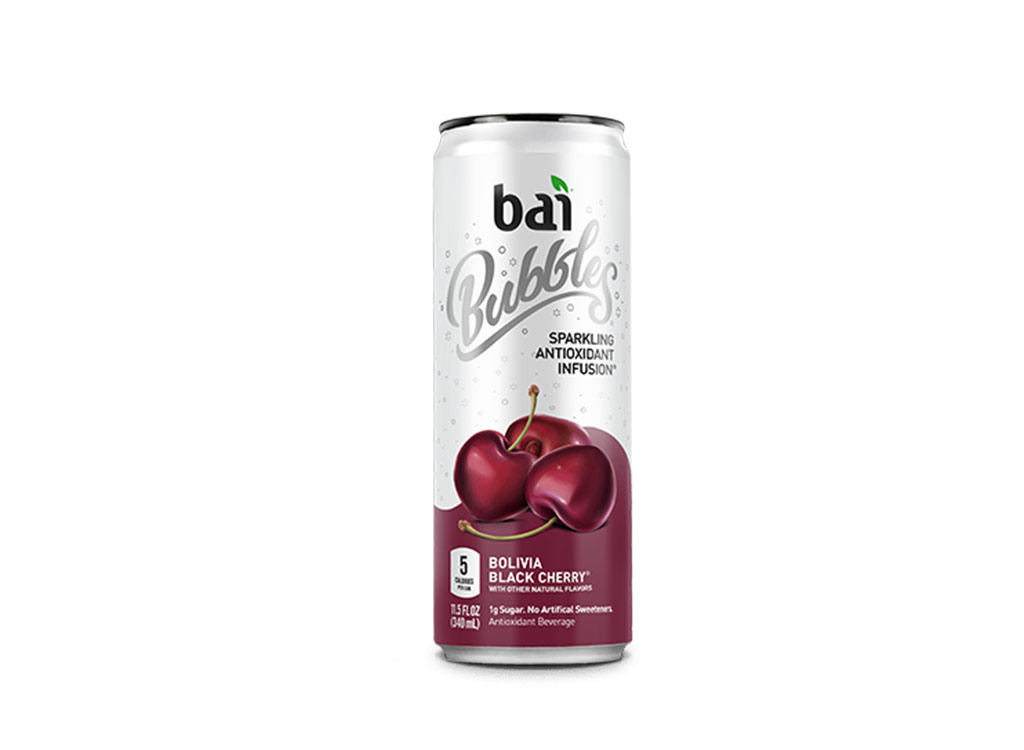
If you combine your seltzer obsession with your love for fruit juice, you get Bai's sparkling energy drinks. Taste-tempting flavors include black cherry, blood orange, grapefruit, blackberry lime, pineapple, watermelon lime, and coconut lime. One can serves up 45 milligrams of caffeine (the equivalent of one cup of green tea) with just 1 gram of sugar and 5 calories. It's so refreshing that it also makes a great mixer for low-sugar cocktails.
Best: MatchaBar Hustle Unsweetened
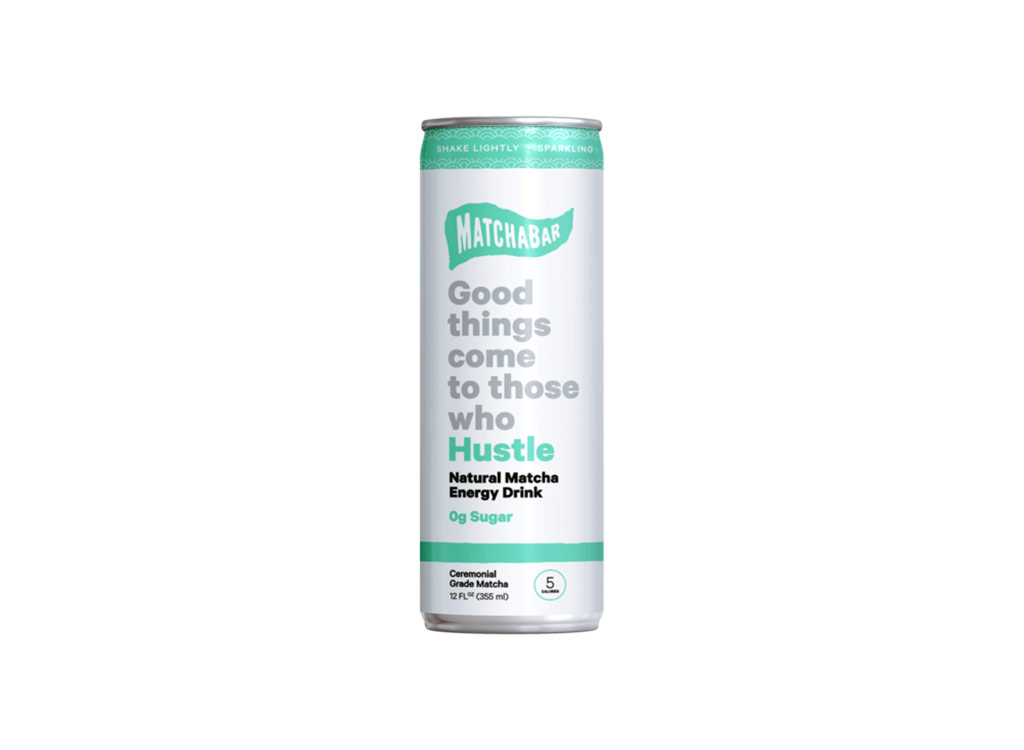
When you need a 3 p.m. pick-me-up, MatchaBar's Hustle has a delicious blend of ceremonial grade matcha, green tea extract, and lemon and lime extracts. At 120 milligrams of caffeine—that's more than what's in a cup of coffee—you'll feel buzzed to get through every meeting, email, and assignment for the rest of your day. And if you're worried about feeling jittery, the L-theanine in the green tea extract has a soothing effect to keep you calm and focused.
Best: RUNA Energy Drinks
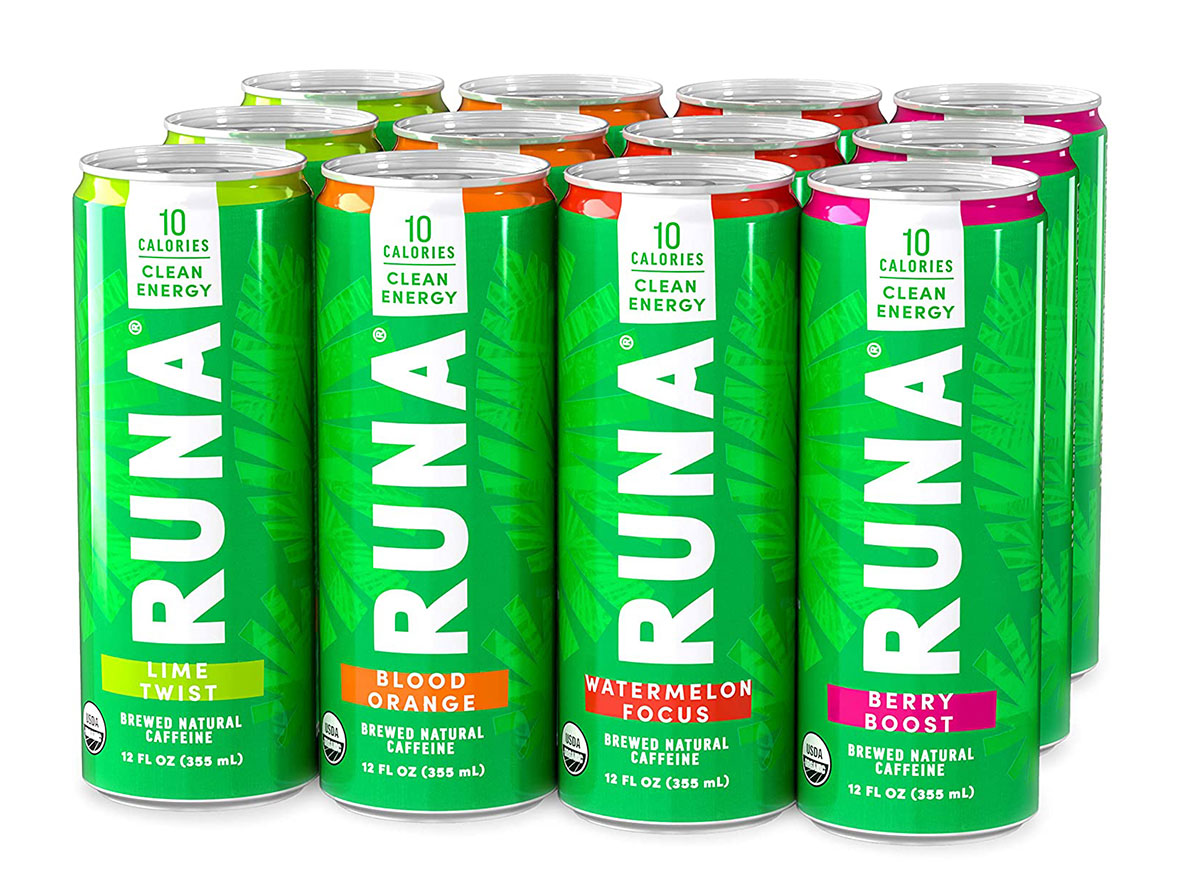
RUNA is brewed with organic guayusa tea, which, according to Cecere, are tea leaves that are a naturally occurring source of caffeine from South America. RUNA's healthy energy drinks pack up to 150 milligrams of caffeine in one 12-ounce can. Cecere says that guayusa "may be less stimulating than synthetic caffeine" but it has "antioxidant properties." Thanks to the organic pear juice concentrate, you get a hint of fruity sweetness without the blood-sugar-spiking white stuff. Choose from unsweetened Mint Strawberry, Watermelon, Lime, Blood Orange, Pineapple, Mango, Berry, and Pomegranate.
Best: Hiball Sparkling Energy Water
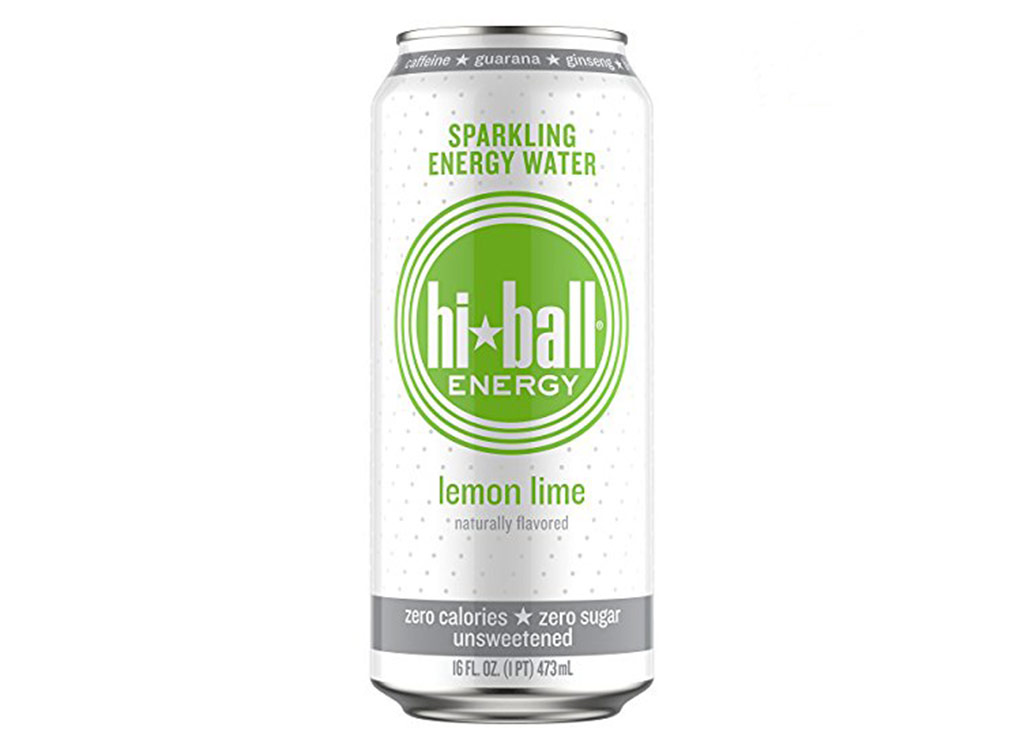
Hiball's sparkling energy waters have only six ingredients: carbonated water, natural flavor, caffeine, ginseng, guarana extract, and B vitamins. Yes, there's absolutely no sugar. And at zero calories and just one gram of carbs, keto diet followers will be able to enjoy this fizzy drink guilt-free, too. The bubbly bev is also fortified with B vitamins to help reduce fatigue and weakness.
"I think it's a good choice if you are having an energy drink, but beware that with 160 milligrams of caffeine and herbs, there is always a chance of an adverse reaction," says Cecere. "I do think it's great that the caffeine is not synthetic caffeine."
Best: Zevia Energy
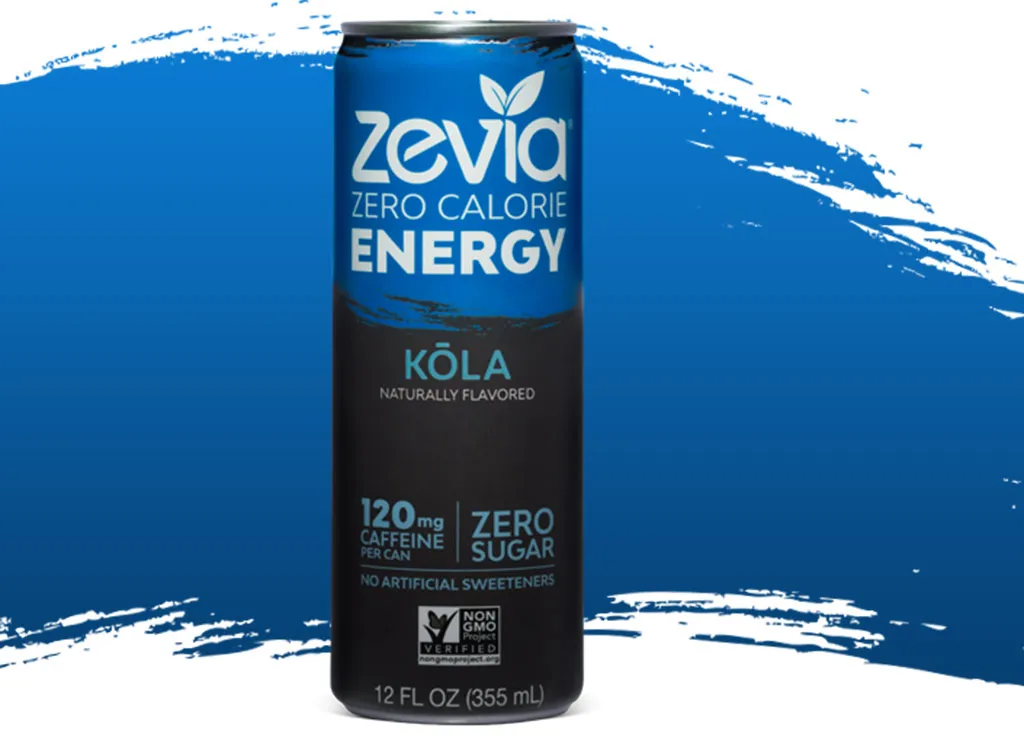
Whether you need a boost to power you through your spin class or a little lift to help you get through a major deadline at work, Zevia's natural energy drink boasts 120 milligrams of caffeine. With zero calories and sugar, there's no better way to get the kick you need. It comes with refreshing flavors such as Grapefruit, Raspberry Lime, Mango Ginger, and Kola—for those who want to wean off of their soda addiction.
"I think the Kola flavor could be used as an alternative to soda," says Cecere. "I like that it does not [have] artificial colors."
Best: EBOOST Super Fuel
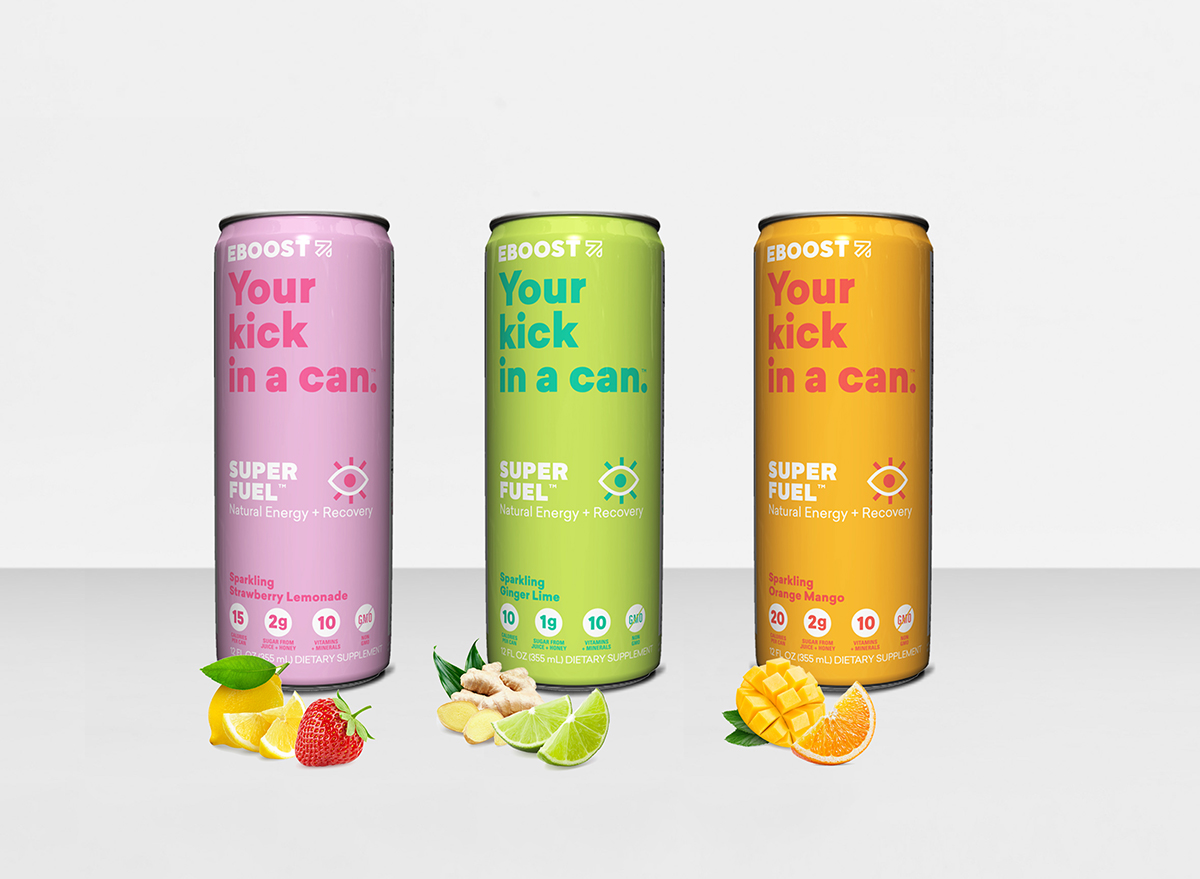
Meet the non-GMO, keto-friendly, and wildly delicious offering from EBOOST that was recently named among BevNET's "Best New Products" of 2019—where it stood proudly as the lone "energy drink" among a crowd of industry-leading teas, kombuchas, lattes, sodas, and flavored waters. But let's be clear: This is no average Red Bull.
Sure, the Super Fuel packs a healthy punch of caffeine (110 milligrams of natural caffeine, to be exact, and derived from botanicals), but it also comes with a healthy blend of essential vitamins and minerals (and without any of the usual artificial flavors, colors, or sweeteners you'll find in other energy drinks). So consider it an added bonus that each can also contains nootropics, which aid cognitive function, and lots (and lots!) of hydration-promoting electrolytes.
For any hard partiers out there (no judgment!), know that it also contains dihydromyricetin, an herbal extract some experts believe is a natural hangover cure; and silymarin, a potent antioxidant that supports liver function. Available in three refreshing fruit flavors (Strawberry Lemonade, Ginger Lime, and Orange Mango), the EBOOST Super Fuel is a natural, clean, and tasty way to stay hydrated—or bounce back from a fun night out!
Best: ZOA Zero Sugar
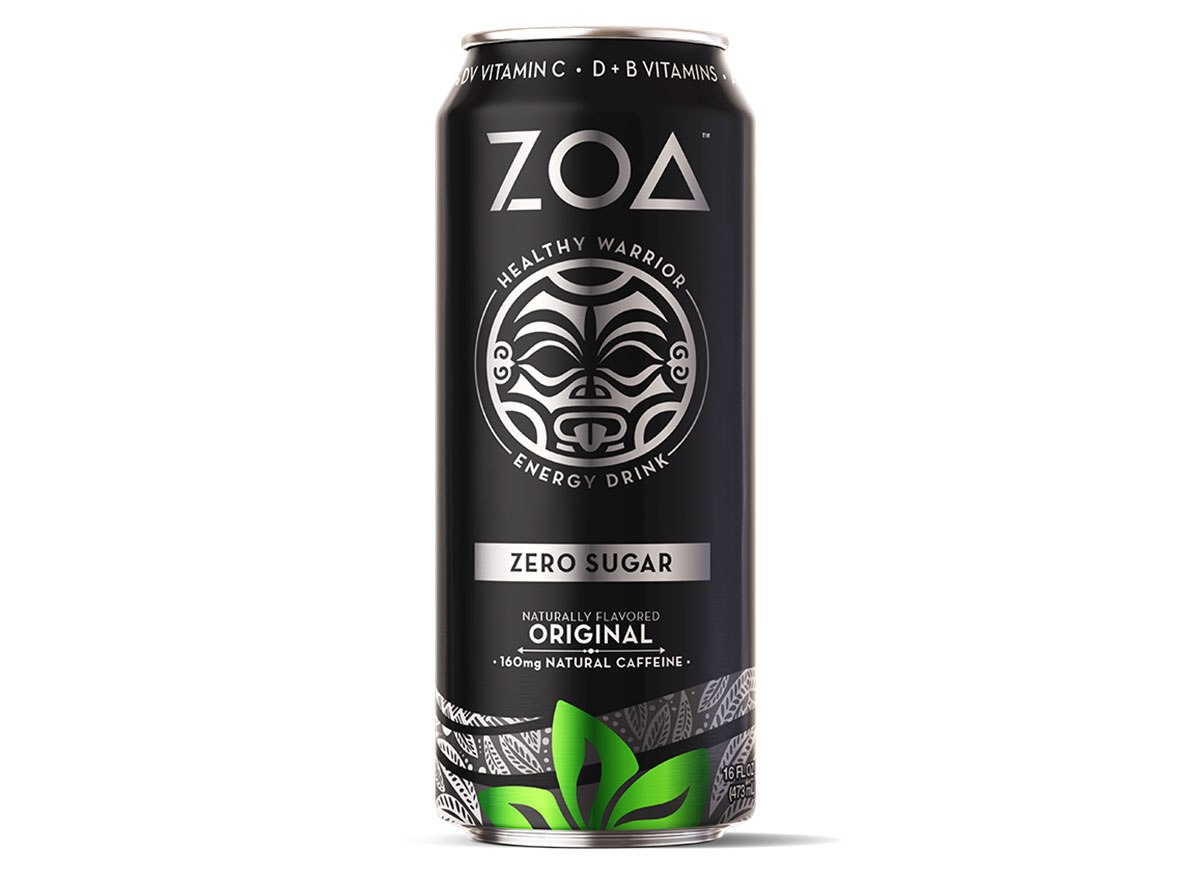
Dwayne "The Rock" Johnson backs this drink, which markets itself as "Five delicious, guilt-free flavors with zero sugar and all the benefits." But how does it hold up? Apart from a long list of ingredients (sometimes suspicious in our book), it may be among the contenders. Graham was the only one who noted a concern with ZOA Zero Sugar, pointing out its 160 milligrams of caffeine per just under a half-liter serving—rather moderate, compared to some others on this list.
The worst energy drinks for your health, including the not-so-great and the absolute worst.
Worst: Rowdy Energy
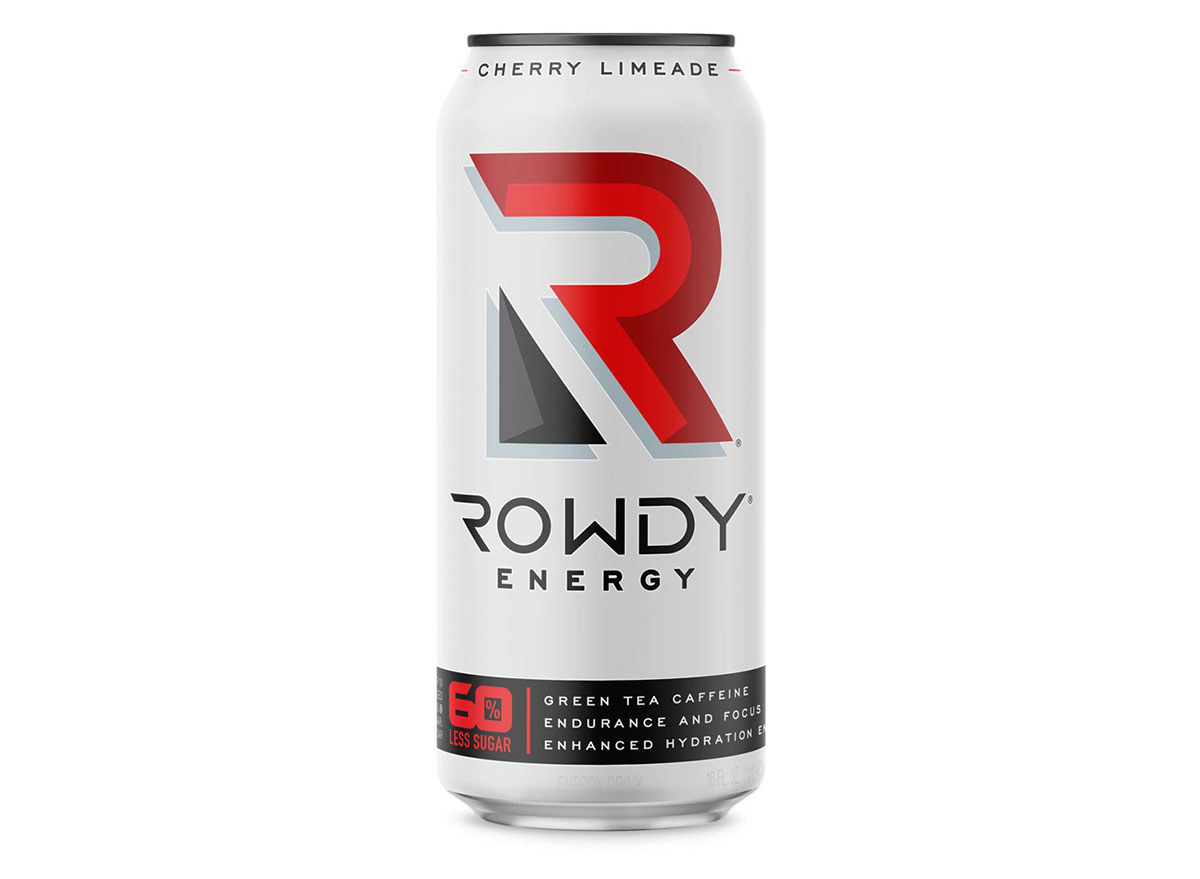
The next energy drink had a much higher amount of erythritol than Monster Energy Zero Ultra, as Rowdy Energy contains 14 grams in most of its flavors. "The main sweeteners in this drink are allulose and erythritol," Hauser said. "So beware of this possibility when trying Rowdy or any other beverages that contain erythritol." On allulose, she explained, "Allulose is a type of carbohydrate, but most of it goes through the digestive tract without getting digested, meaning it doesn't affect calorie intake or affect blood sugar much."
For Rowdy Energy's 160 milligrams of caffeine (equivalent to around a cup and a half of coffee), Graham pointed out it came from a natural source, which is tea. However, the carbs, calories and sugar in the Orange Citrus flavor caused Graham to liken Rowdy to six teaspoons of sugar.
Worst: Mountain Dew Rise
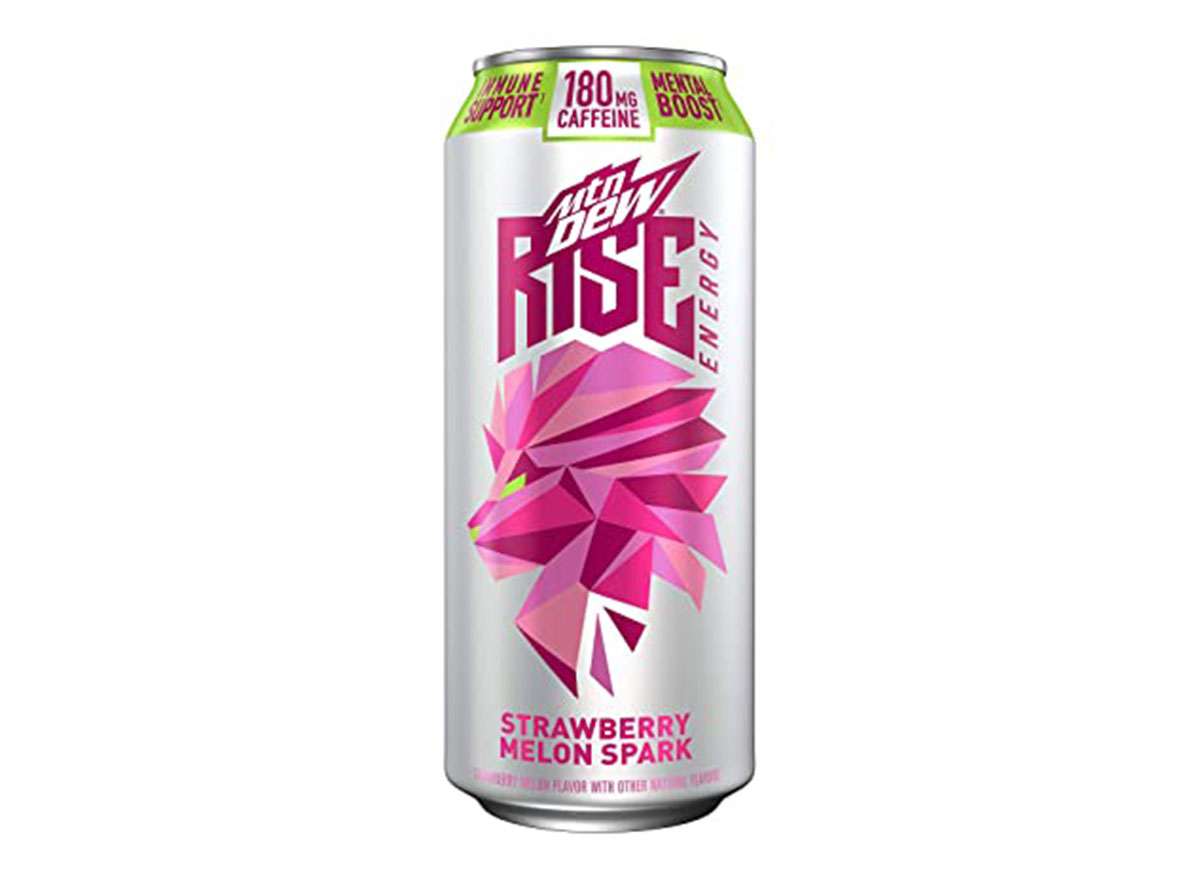
Are you surprised this one landed at the bottom? Mountain Dew may be targeting morning non-coffee drinkers with this, and it may even claim to be flavored with 5% grape juice. However, all this gives rise to what Dr. Avena says is a big warning for young Mountain Dew Rise drinkers: "Although it's relatively low in sugar, the first ingredient aside from water is sugar [in the form of] white grape juice concentrate and it contains multiple artificial sweeteners (aspartame and sucralose) and colors (yellow 5)." Why the yellow flag on yellow 5? Avena says: "Some research shows a potential link between artificial colors, including yellow 5, and hyperactivity in children." In fact, she explains, if a product in the European Union contains yellow 5, among other artificial colors, it must contain a warning label.
Worst: Red Bull Coconut Edition Sugar Free Energy Drink
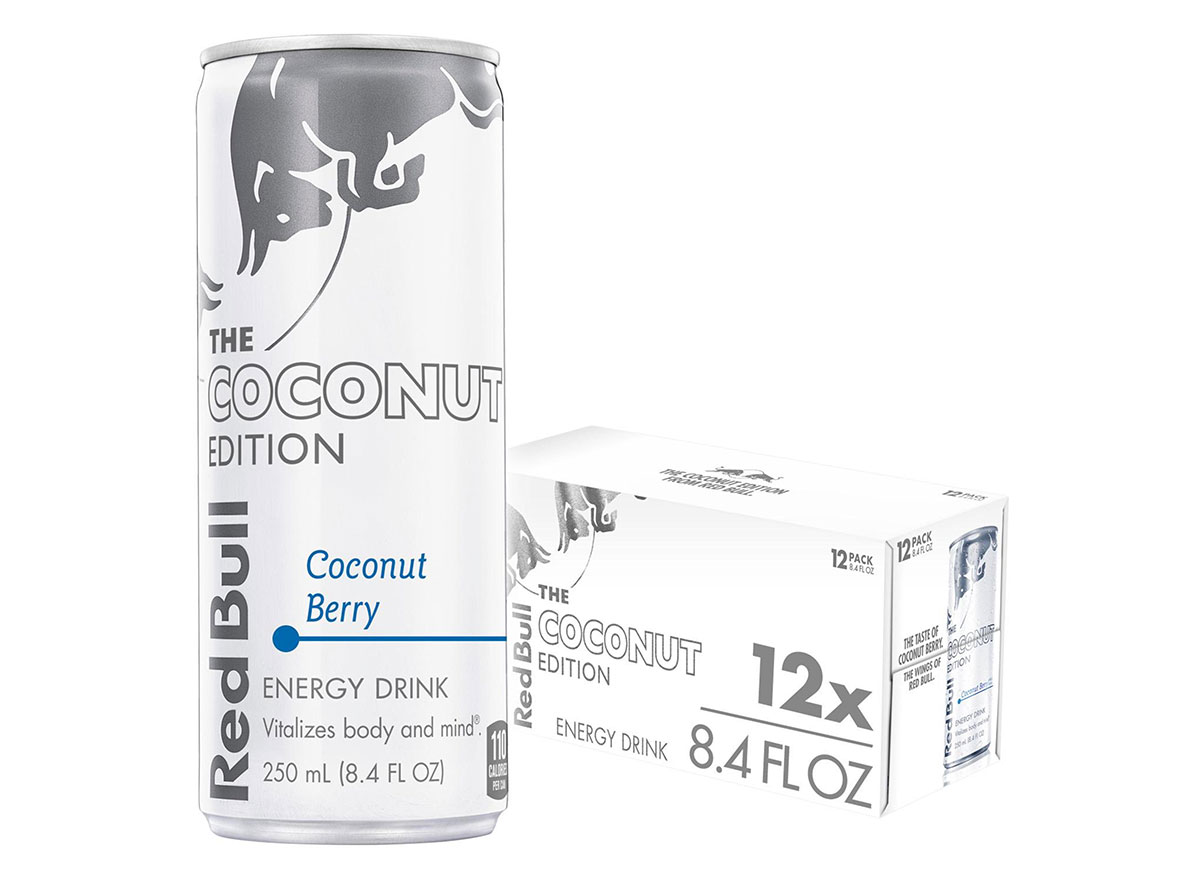
"Sugar free"? Maybe not so much. Graham points out that Red Bull Coconut is actually sweeter than regular Red Bull, it just comes in a smaller can. Hauser added that although Red Bull seems to have made a nice try with this more natural-sounding new product, it doesn't quite cut it. "Both the sugar-free and regular versions have some issues," Hauser said. "First of all, if you are trying to go the more natural route, the first red light here is 'natural and artificial flavors.' That could be a host of things and it's almost impossible to find out what is used. And although they are considered safe by the FDA, sucarlose, aspartame, and acesulfame K are artificial sweeteners that are made in a lab, not in nature. So if someone is looking to minimize artificial ingredients in their diet, this may not be the right option for them."
Worst: Natural Bang
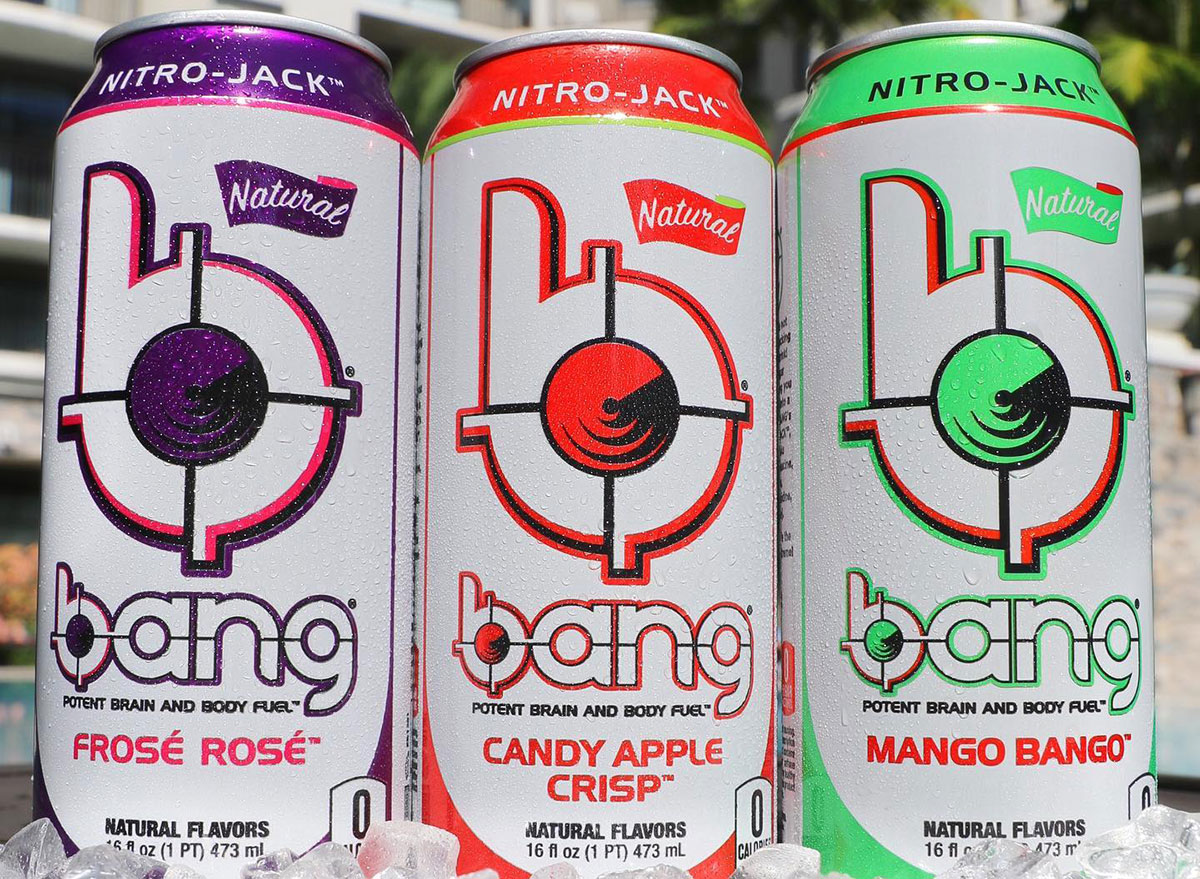
Yes, this is low-calorie, and Dr. Avena says that at first glance, Natural Bang seems like one of health-friendlier options. But, there's one problem that might keep you up at night—literally. "Natural Bang is sugar-free, and instead used stevia to give you a low-calorie energy drink," Avena says. "The ingredients list isn't terribly concerning, either." However, she adds, what is very concerning is the amount of caffeine. One 16-ounce contains 250 milligrams of caffeine, which is triple some energy drinks, or almost 50 percent more than many. "Depending on your tolerance level, consuming energy drinks such as Natural Bang throughout the day … can cause adverse side effects such as jitters, nausea, heart palpitations, and even vomiting." That gets even worse, Avena says, if you add other caffeinated sources, like coffee, soda, or tea.
Worst: Rock Star Organic
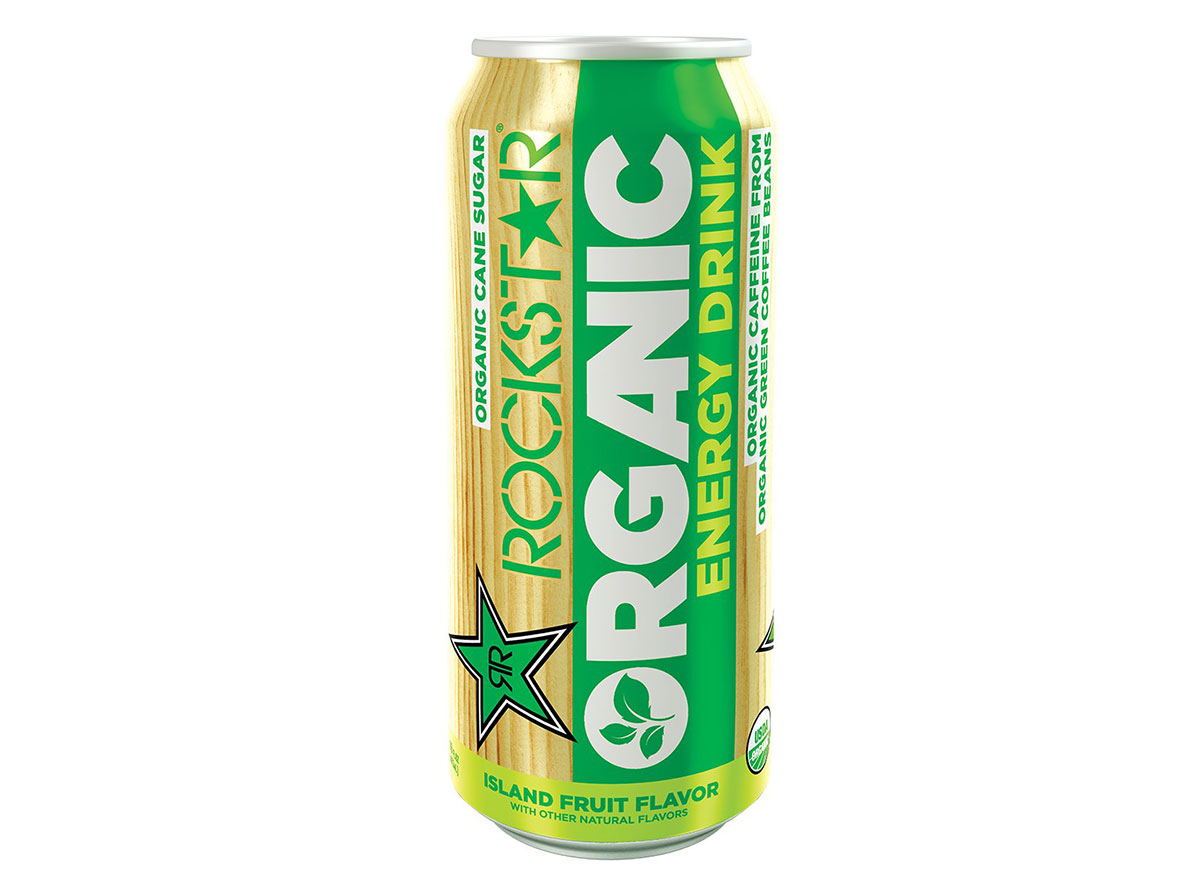
Rock Star took a pass at a healthier "organic" version, but this didn't land them anywhere near the top of the charts. The caffeine is not terribly over-the-top, but the amount of calories is steep—as Graham says, 180 calories "is equal to 11 teaspoons of sugar per 444-milliliter can." They might call themselves Rock Star, but that's not very cool.
Worst: Monster
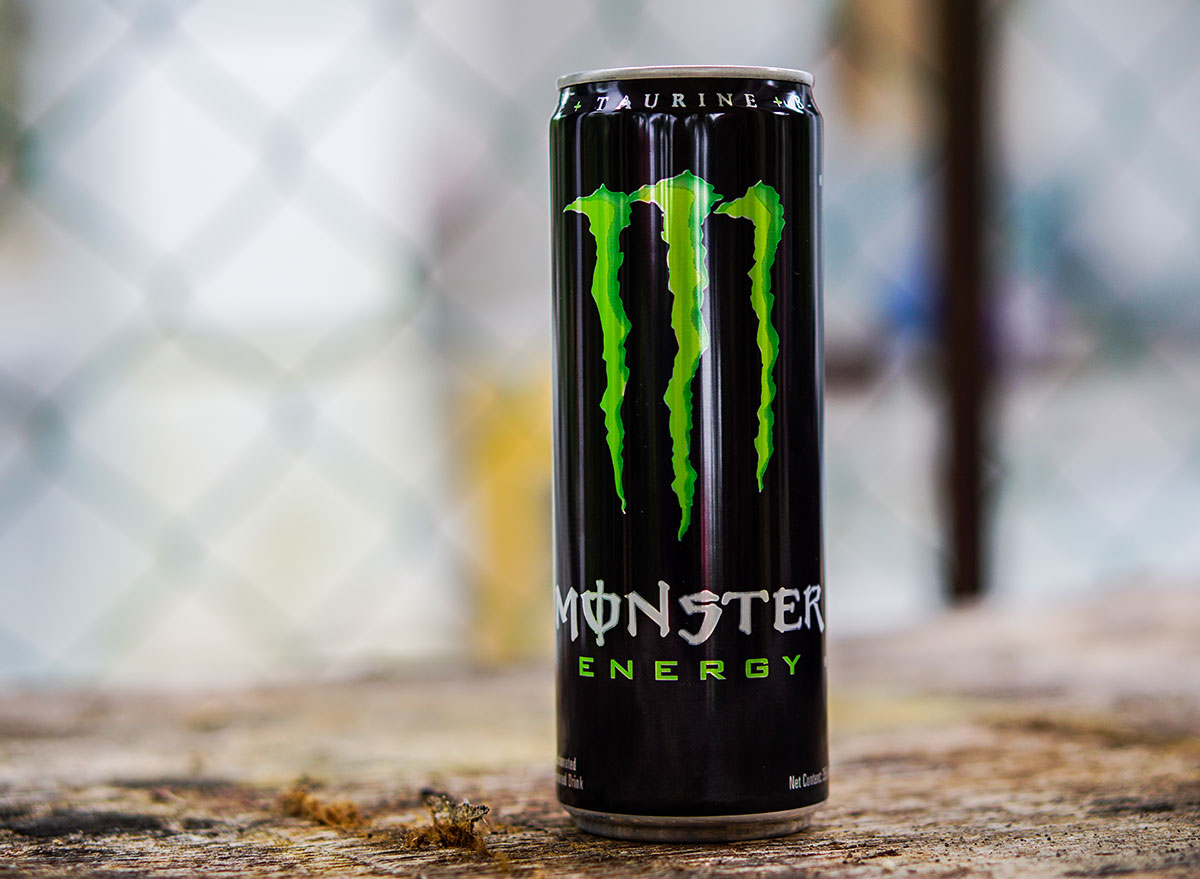
While Monster Energy may not be the worst of the worst energy drinks, it's still hurting more than it's helping your energy for the day. The sugar content is high for this drink.
"These drinks are not only high in calories but they are empty calories," says Cecere. You would probably be better off eating a snack that will give you all-day energy.
Worst: Red Bull
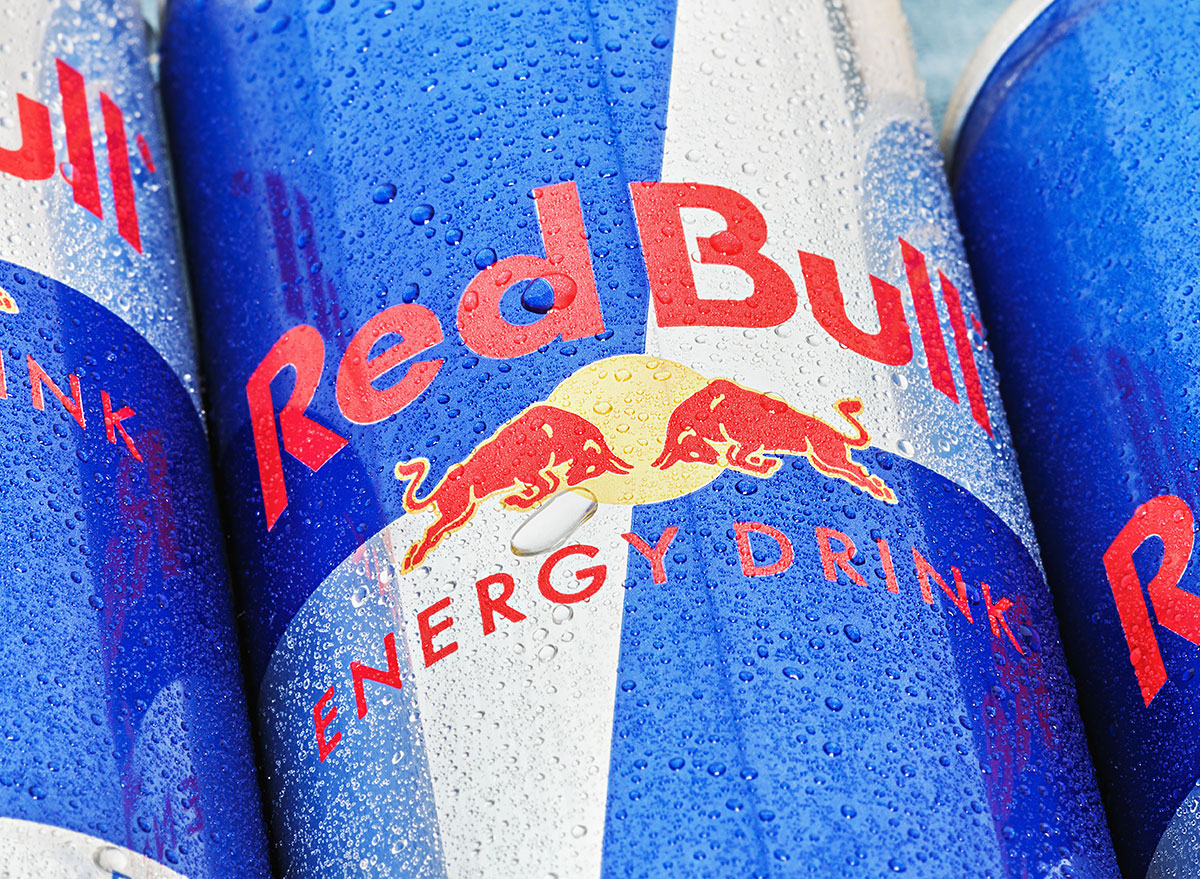
While Red Bull tends to be the quintessential energy drink of choice, it's not great for your health. For a small 8-ounce can, the sugar content is quite high.
"The worst energy drinks are the ones that are high in sugar, artificial colors, and caffeine," says Cecere. If you're looking for a quick caffeine fix that doesn't rack in the sugar, you may be better off with a shot of espresso, which has 51.3 milligrams of caffeine in it (compared to Red Bull with 75 milligrams).
Worst: Rockstar
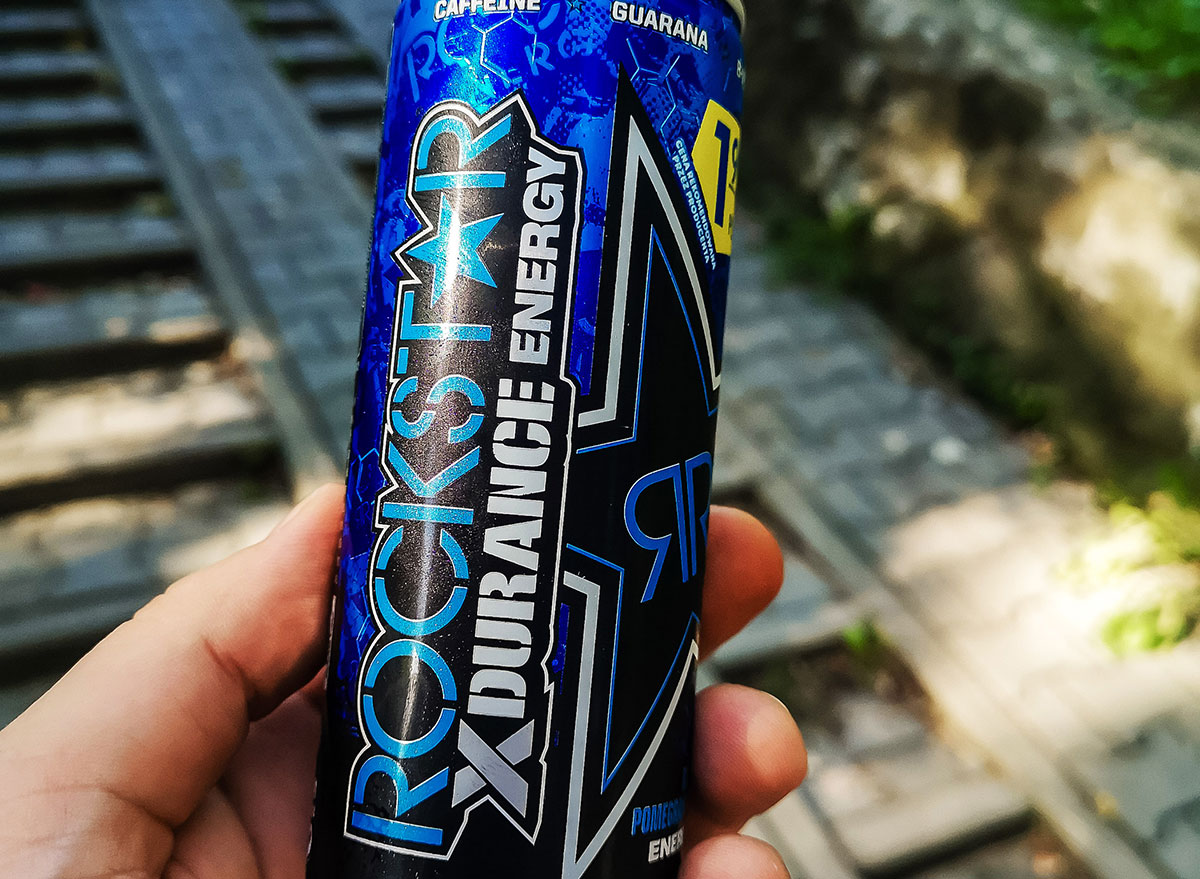
If you're looking to cut back on the sugar, Rockstar energy shouldn't be your top pick. In fact, this drink has 59 grams of sugar per 16-ounce can. Cecere notes you should "stay away" from sugar that high.
According to Healthline, high amounts of caffeine and sugar will not only cause increased blood pressure and heart rate, but the inevitable crashes will put your body under stress and release a "roller-coaster" of hormones.
Worst: Full Throttle
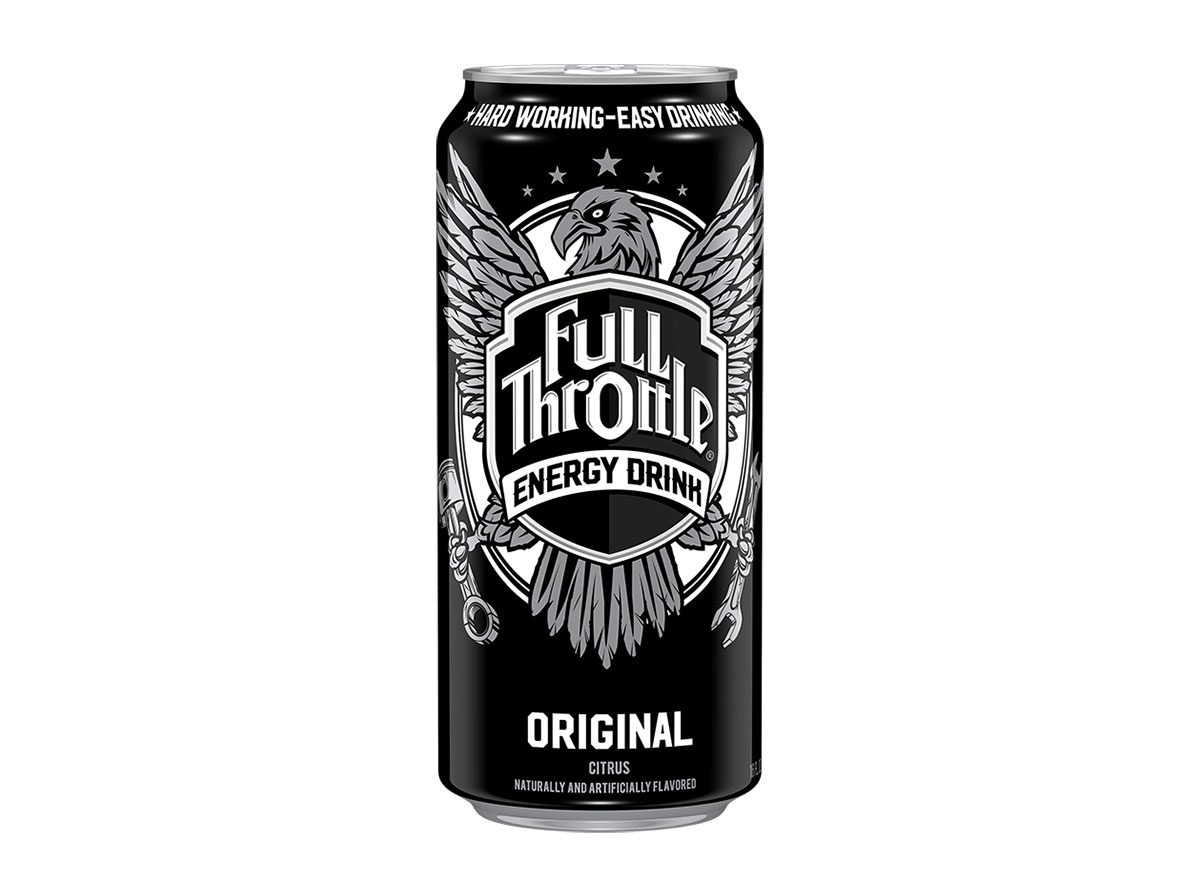
Full Throttle is officially the worst energy drink of them all. With 220 calories and 58 grams of sugar per can, this drink has more sugar than five Reese's Peanut Butter Cups. Why drink these empty calories when you can easily be enjoying real, healthy carbs instead? Plus, if you're looking for an afternoon energy boost, you can always get the caffeine from what Cecere calls "natural energy drinks" like unsweetened brewed coffee, espresso, black tea, and green tea—all with little to no calories!




